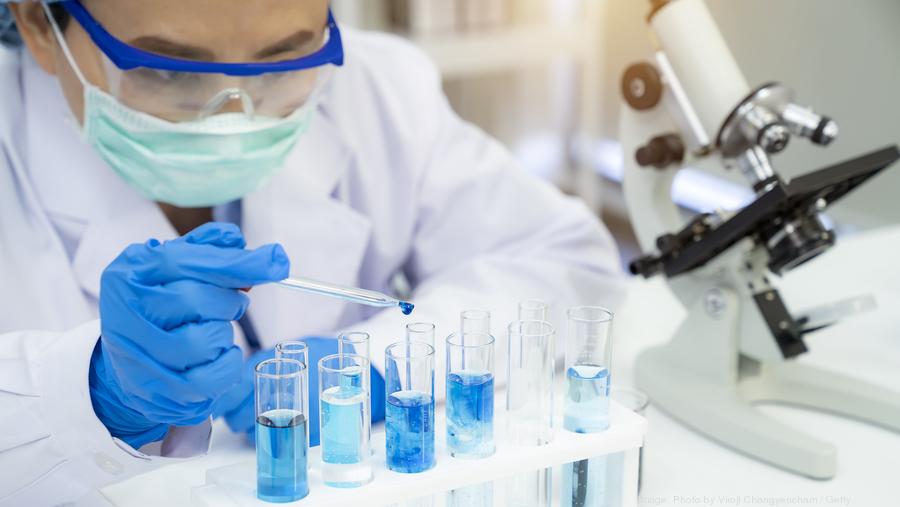
Visitors / Employees
PHILADELPHIA BUSINESS JOURNAL • New life sciences initiative targets local industry growth, talent pipeline acceleration
Originally published by The Philadelphia Business Journal

A new local initiative launched this week with $3.4 million in funding and a goal of growing Philadelphia's life sciences industry and strengthening its talent pipeline.
The Keystone LifeSci Collaborative was established by a group of local life sciences leaders and community partners to serve as a forum for industry executives from across southeastern Pennsylvania to collectively address challenges like how best to enhance the region's competitiveness.
The collaborative is being supported by $3.4 million in funding from the American Rescue Plan Act. The funding is part of a larger $22.8 million grant Philadelphia Works received under the act's Good Jobs Challenge to spur job growth in sectors including health care, energy, building trades and construction. The nonprofit organization's goal for the overall grant is to create 3,000 family-sustaining jobs in southeastern Pennsylvania.
H. Patrick Clancy, president and CEO of Philadelphia Works, said the intent is not to simply initiate another life sciences workforce program. Rather, it is to "actively transform the life sciences sector landscape" in southeastern Pennsylvania and affirm Philadelphia's status as a center of innovation.
Geographically, it will specifically focus on Berks, Bucks, Chester, Delaware, Montgomery and Philadelphia counties.
The industry-led collaboration, Clancy said, will "harness the full potential of workforce development resources to cultivate a talent pipeline prepared to meet the challenges and seize the opportunities of the future."
The collaborative's inaugural meeting on March 6 at the Marriott Philadelphia West in Conshohocken was attended by more than 30 leaders from the region’s life sciences companies and research institutions, including Adaptimmune (NASDAQ: ADAP), Century Therapeutics (NASDAQ: IPSC), Integral Molecular, Iovance Biotherapeutics (NASDAQ: IOVA), Lampire Biological Laboratories and VintaBio.
At the meeting, the group identified five priorities:
- Strengthening business-to-business connectivity;
- Developing a coordinated strategy for building a talent pipeline;
- Influencing policy;
- Raising awareness of life sciences careers; and
- Marketing the region as a life sciences hub.
David Radspinner, CEO of VintaBio, a contract manufacturer based at the Philadelphia Navy Yard, said one of the top challenges his company faces is the availability of a skilled workforce to research, develop, manufacture and deploy cell and gene therapies. Through the Keystone LifeSci Collaborative, he said businesses will work together to address workforce challenges and other shared business priorities.
The Keystone LifeSci Collaborative is based on the nationally recognized Next Gen Sector Partnership model, which is active in more than 100 regions across the country. The model differs from traditional government-driven workforce development initiatives where the public sector takes the lead and the industry's role is more reactive. In the Next Gen approach, business leaders are expected to be proactive and create solutions together to shared issues, with support from government and nonprofit partners.
The collaborative is being guided by a steering committee that has representatives from the West Philadelphia Skills Initiative, The Wistar Institute, The Chamber of Commerce for Greater Philadelphia, Select Greater Philadelphia Council, Montgomery County Community College, Life Sciences PA, and SMART Bio Works.
The collaborative's public and community partners include the University City Science Center, Drexel University, CIC Philadelphia, Bucks County Community College, the Philadelphia Education Fund, and the City of Philadelphia Commerce Department.


